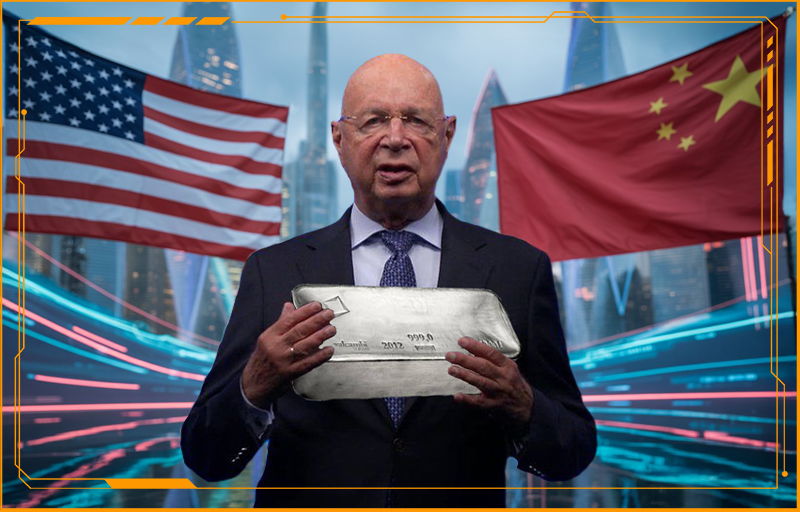The US and China aren't just beefing over shipping containers and semiconductor chips. They're untangling a 25-year economic marriage that rewired the global economy. The tariff war? It’s not just a trade fight. It’s a forced decoupling—violent in pace, systemic in scope. Bilateral trade could drop by as much as 80%. The WTO estimates global GDP could shrink 7% from this alone—over five times worse than the 2008 recession.
That ain’t just a beef. That’s a controlled demolition.
Klaus Schwab's Vision: The Fourth Industrial Revolution

Klaus Schwab’s book The Fourth Industrial Revolution outlines a transformation driven by AI, biotechnology, IoT, robotics, quantum computing, and digital surveillance. He describes this as a systemic reset—not just of technology, but of institutions, power dynamics, and human identity itself. It’s a revolution characterized by:
- Velocity (exponential growth)
- Breadth and Depth (cross-sector, cross-border integration)
- Systemic Impact (full rewiring of governments, economies, and values)
Schwab calls for multistakeholder governance—public-private partnerships—to manage this upheaval. But here’s the twist: the US-China tariff war looks less like a policy accident and more like a prelude to the very future Schwab describes.
Tariffs as Tools of Economic Reordering
In Schwab’s framing, massive disruption is a feature, not a bug. The same is happening now with tariffs. Trump’s trade war ramped from 10% to 145%+ in record time. Whole sectors were targeted—electronics, autos, agriculture. Smartphones were on the list, off again, back on. PS5s, Switch consoles, and cosplay wigs suddenly got slapped with extra costs.
This chaos isn’t reactive—it’s directional. In Schwab’s terms, it’s disruption with a purpose.
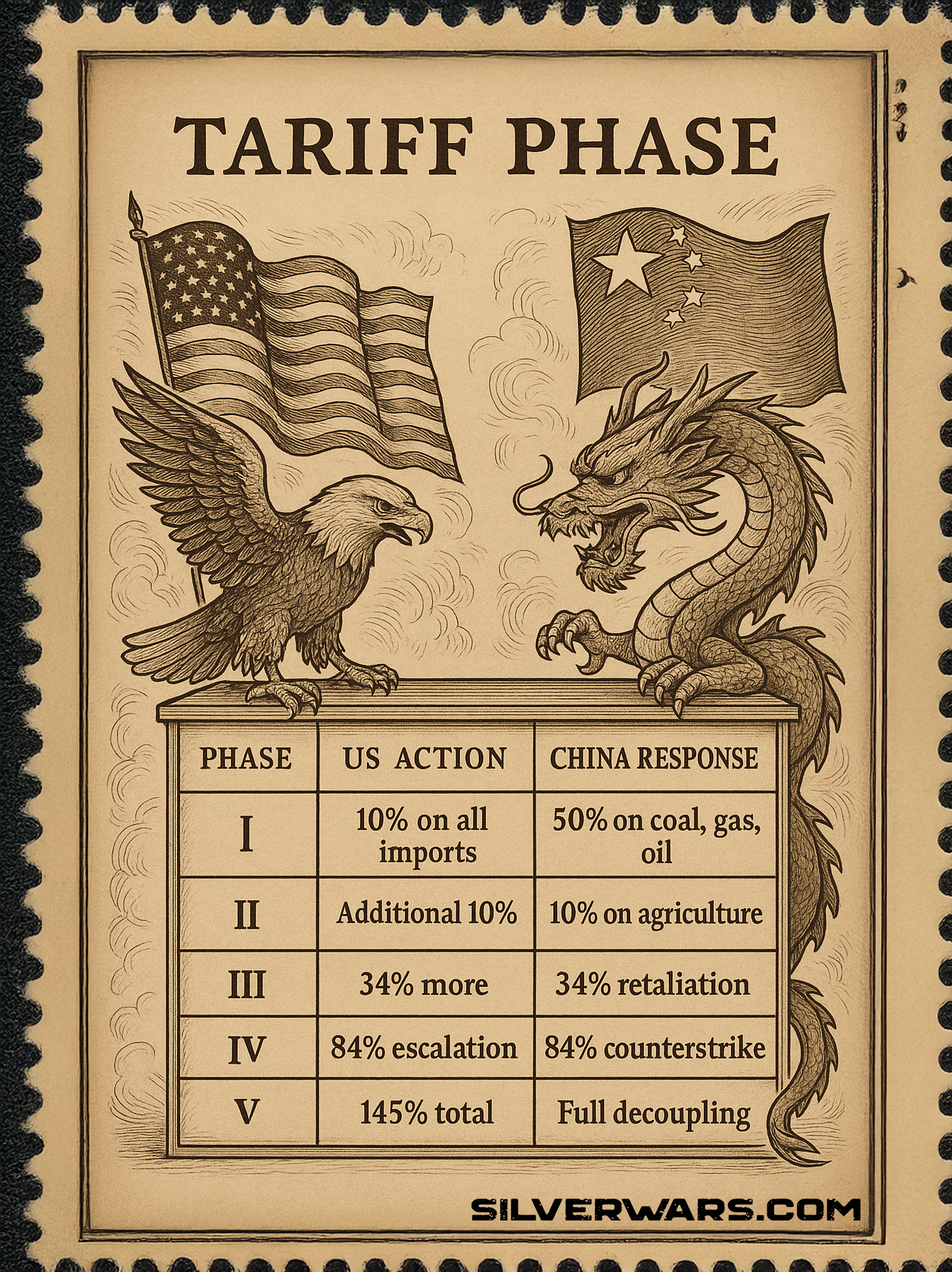
We’re not looking at normal tariff retaliation. We’re looking at economic war to drive systemic divergence. It’s no longer just a spat. It’s foundational restructuring.
The Collapse of Trust in Globalization
Schwab emphasizes how the Fourth Industrial Revolution is eroding old trust systems. Globalization was predicated on stable supply chains and diplomatic reliability. The tariff war shattered that.
"Once you flip the game board over, even if you reset it, no one plays the same."
The US slapped tariffs on allies (Canada, Japan, South Korea, Europe). Trade deals are framed like extortion in the eyes of our closest allies. Trump’s negotiation style is seen as chaotic, unpredictable to them. For Schwab, the future will demand new frameworks of trust—digitally enforced, multilaterally governed. As the trade talks happen, calm and peace need to be in place for any meaningful progress to happen.
The current breakdown? A cleansing fire, burning away the outdated institutions of Bretton Woods.
Weaponizing Deglobalization: Tech, Trade, and Rare Earths
The US blocked tech exports—semiconductors, drones, sensors. China responded by restricting exports of rare earths, silencing Hollywood, and flexing soft power via TikTok. This isn't tit-for-tat. This is weaponized deglobalization.
Schwab describes the Fourth Industrial Revolution as “a fusion of technologies across physical, digital and biological domains.” What’s being fought over in the tariff war? Exactly those tech domains:
- Autonomous vehicles
- AI systems
- Renewable energy gear
- Surveillance infrastructure
- Genetic tech and smart manufacturing
- The Internet of Things, a Orwellian Spy Network of Satellites
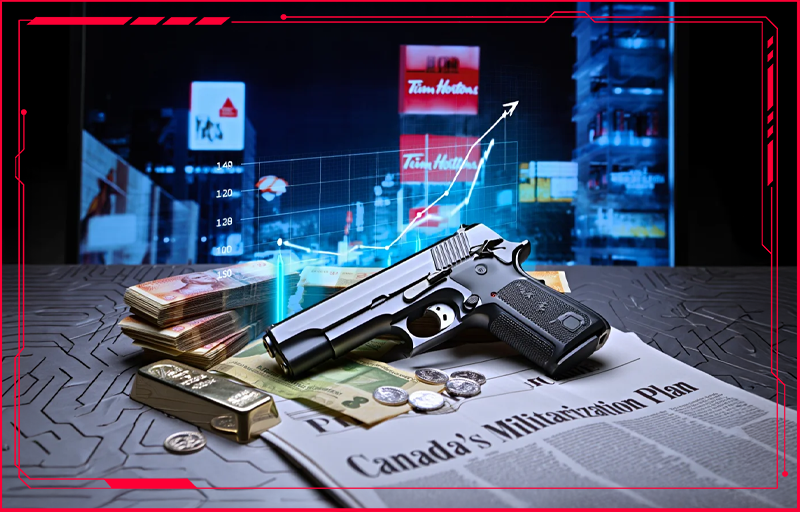
China doesn’t just manufacture consumer goods—it owns the tooling of the revolution.
The Critical Minerals Chessboard
Klaus Schwab doesn’t speak directly on mineral supply chains, but his system's foundation relies on them. Meanwhile, the trade war has dragged critical minerals like lithium, cobalt, rare earths, and especially silver into strategic focus.
The US wants to re-shore chip production. China responds by threatening to cut off gallium and germanium. Brazil is pulled in to feed China soybeans and copper. Europe panics and starts building its own stockpiles.
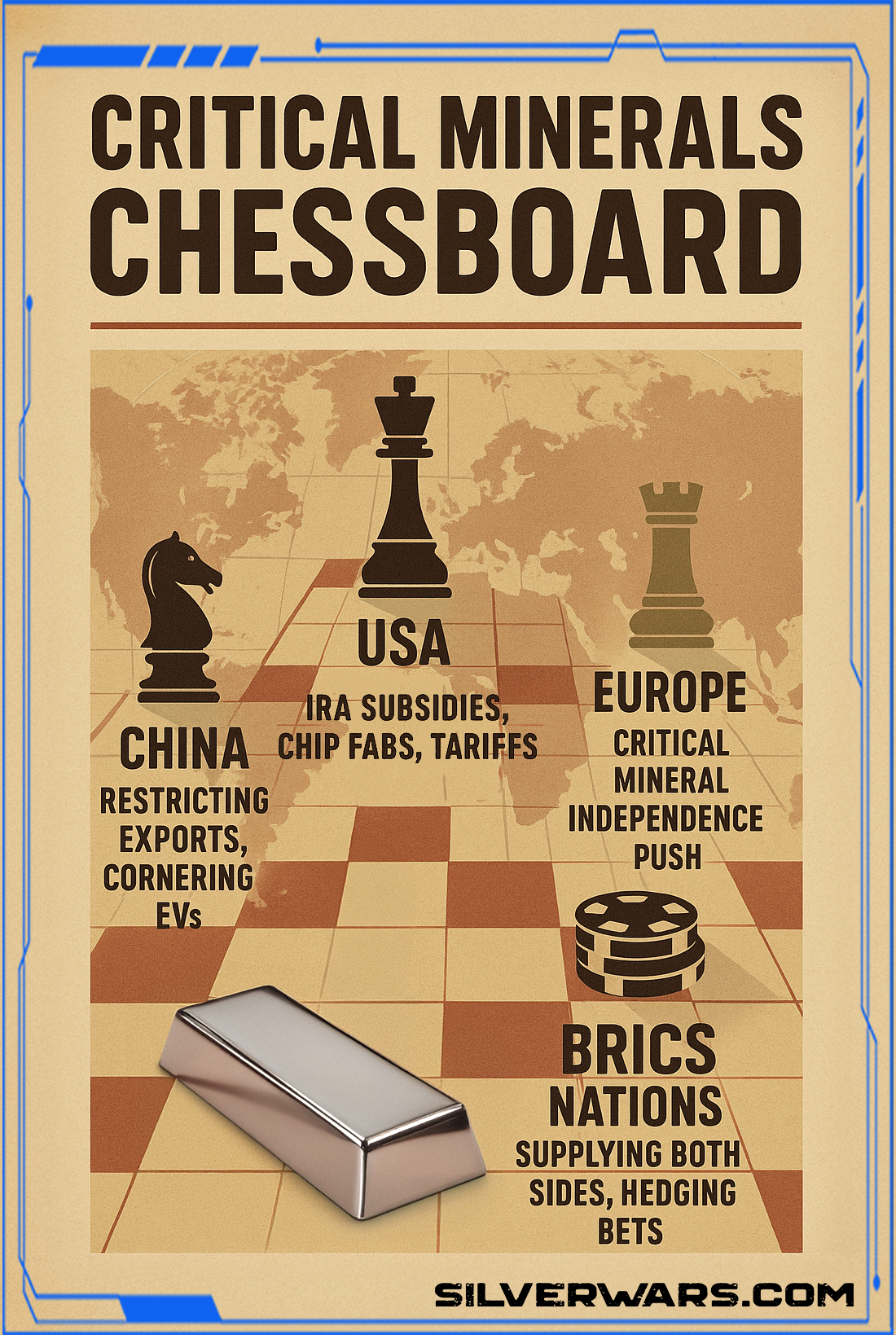
We’re witnessing the birth of a global minerals bifurcation, lining up with Schwab’s vision of reshaping energy, food, and tech systems at their atomic roots.
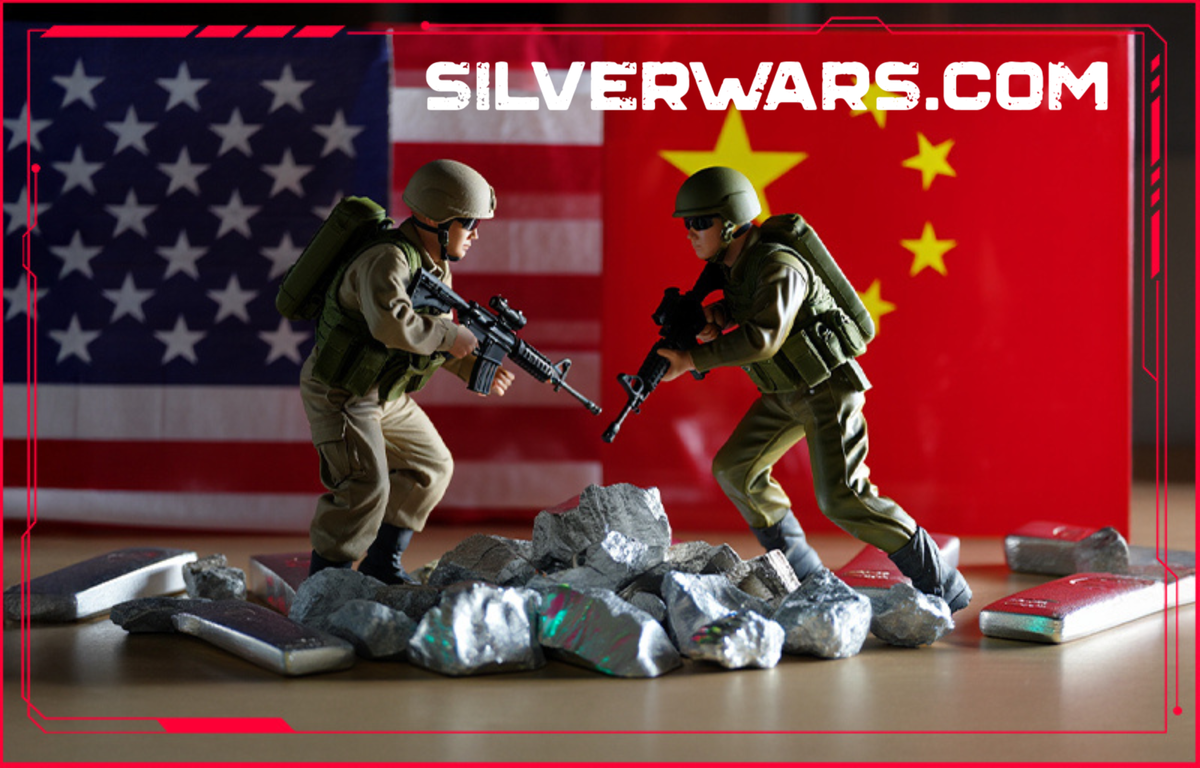
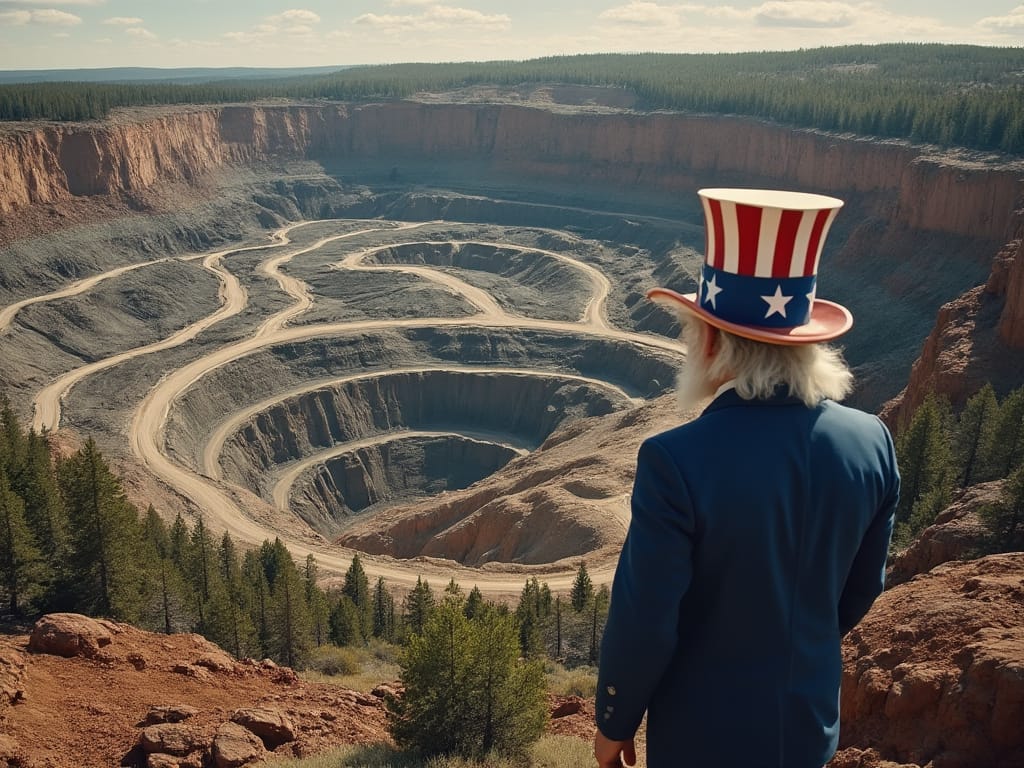
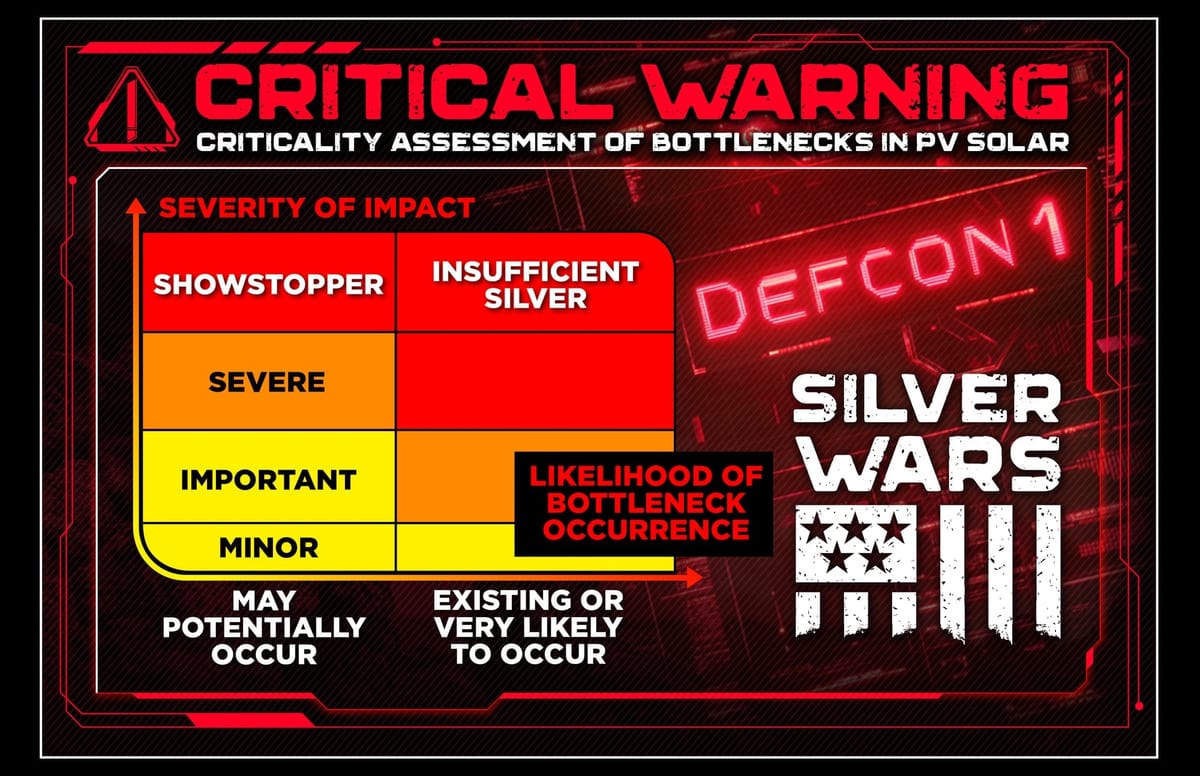
The Digital Twin: Schwab's Future vs. Today’s Tariff Wars
Schwab’s vision involves smart cities, ambient AI, and biometric governance. But for those systems to emerge, someone has to control the physical architecture: chips, servers, sensors. The US-China trade divorce is the fight for who gets to own the substrate of Schwab’s digital utopia.
Ironically, the more aggressive the tariffs become, the more they accelerate Schwab’s “Fourth Revolution”:
- Trust breaks? Blockchain gains traction.
- Energy uncertainty? Smart grids get funded.
- Tech bans? Countries build local innovation hubs.
- Dollar loses power? CBDCs (central bank digital currencies) gain speed.
The tariff war isn’t delaying the revolution. It’s the blood price of birthing it.

Cold Peace or Cold War 2.0?
The world has two futures:
- Cold War 2.0: Hard alliances, rearmament, cyber skirmishes, regional flashpoints.
- Cold Peace: Economic firewalls, dual innovation ecosystems, controlled coexistence.
This video shows a Chinese official who studied and worked hard his whole life, but his hard work only nourished the career of his superior. Trapped in a system that was difficult to climb out of and involuted, he looked for another way to reward himself for his hard work and achieve his goals. He chose to make the difficult and important decision to contact the CIA in a safe way.
In Schwab’s book, the key is managed multilateralism. But trust is collapsing too fast for that. Countries are being forced to choose: join the US bloc, the China bloc, or go neutral and get squeezed. Even allies like Japan and South Korea are now hedging.
Militaries are rearming. Allies are eyeing nukes. The US security umbrella? Fraying. The Fourth Industrial Revolution isn’t just a tech wave—it’s a reshuffling of geopolitical DNA.
You Are Living Through the Reset
The US-China tariff war is not a mistake. It’s a mechanism. It’s the demolition crew clearing space for a new global operating system. Klaus Schwab wrote the theory. Trump and Xi are testing the beta.
The decoupling of trade, tech, and minerals isn’t random. It’s strategic scaffolding for a post-dollar, AI-governed, vertically integrated world order.
Schwab may have retired but his plans and impact on the WEF's goals, will remain. You’re not waiting for the Great Reset. You’re already in it.

